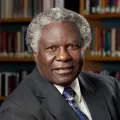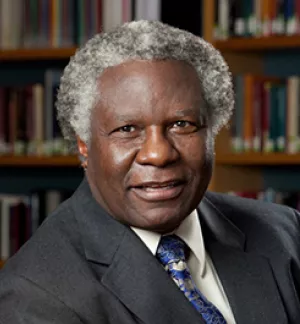Democracy is at the crossroads in Africa. Most dictators are gone but ethnic supremacy and other sectarian forces are usurping the will of the people. Averting these trends will require a new generation of political parties that campaign for development policy rather than ethnic interests.
This process of defining party platforms will need to be supported by indigenous think-tanks that analyse and elaborate on popular expressions and wishes.
Put another way, Africa has gone a long way in removing the ravages of arbitrary power. What is needed now is to build institutions that strengthen the capacity of the people to control their destiny.
Government programmes need to be guided by smart party platforms that articulate the interests of the people.
Africa has made dramatic democratic strides in recent years. Over the last 15 years, more than 30 countries have abandoned one-party dictatorships in favour of variants of multi-party democracy.
Dramatic democratic strides
More than half of the 53 African countries are electoral democracies, according to a Freedom House classification.
Removing dictators and holding regular elections has hardly been accompanied by the rise of institutions that articulate the interests of voters.
Most political parties are no more than alliances of convenience that advance parochial interests, patronage and cronyism.
Advancing democracy in Africa will require institutions that facilitate communication between the government and voter. In practice, elected officials will seek to promote what is in the nation’s best interest, and be responsive to the needs of the electorate.
What Africa needs are specific party platforms that transcend historic, ethnic, religious, and political alliances. Elected governments will, in turn, need to focus on implementing these platforms, which will also help to guard against the excessive control of the development agenda by the civil service.
Party platforms are essentially documents in which political parties enumerate their goals and principles in ways that go beyond rhetorical exhortations. They are the result of thoughtful discussion and compromise, and attempt to reflect the core values and commitments of the party.
Creating effective party platforms will, therefore, require considerable intellectual input, which can be provided through think-tanks and other research institutions. Most African political parties have little intellectual support.
Instead, their manifestos are largely a long list of wishful thinking that is not guided by serious debate and analysis of the future.
It is through such intellectual dialogue that countries can start to map out visions for their future. This process will not only offer voters the opportunity to express their views, but it will also replace routine squabbling with reasoned debate and dialogue.
The struggle against the blatant use of arbitrary power required mass movements. But deepening democracy will require mechanisms that allow society to mobilise and use the best available ideas. Think-tanks and other research-oriented institutions are essential to this process.
In young democracies, party platforms would serve as a stable foundation and source of guidance for government activities.
Parties would be required to develop programmes that reflect the will and needs of the citizenry, and would in turn be elected or defeated based on their policy proposals.
Open dialogue over policy is a key element of democracy. Platforms would foster healthy competition between parties, and as a result, parties would become more distinctive and unique.
The electorate would, in turn, have a choice when voting, and would not be compelled to revert to voting based on ethnic or religious affiliations.
Ability to implement policy
In establishing platforms, parties would become more accountable to the people. By stating future promises, the parties would provide voters with a means of measuring their performance if they are elected.
There would be a greater incentive for parties to fulfil their platform pledges, as their success in subsequent elections would be influenced by their ability to implement policy.
Platforms are not meaningless campaign documents. Rather, they play a significant role in setting the stage for the implementation and execution of policy after an election.
Forming the platforms, and making decisions as a party as to their content and design, can foster healthy debate and discussion, which is considered a pillar of democracy.
In nascent African democracies, party platforms would help facilitate effective and accountable political parties. They are blueprints for the future, and they encourage parties to be responsive to the needs of the electorate, thus helping professionalise the political process.
Building modern political parties and associated think-tanks is, therefore, the most urgent political agenda facing the continent. Failure to do so will result in the abortion of democracy, political chaos and economic decay.
Prof Juma teaches the Practice of International Development at Harvard University’s Kennedy School of Government, while Ms DiSenso is a research assistant in the Kennedy School of Government’s Science, Technology and Globalisation Project.
DiSenso, Allison and Calestous Juma. “Political Parties as Tools of Democracy.” The Daily Nation, January 11, 2006






